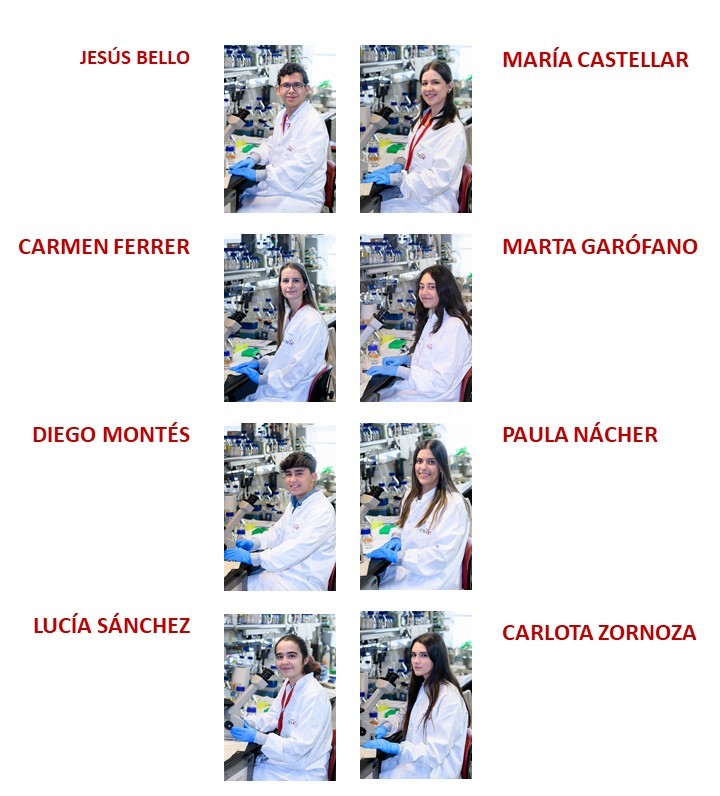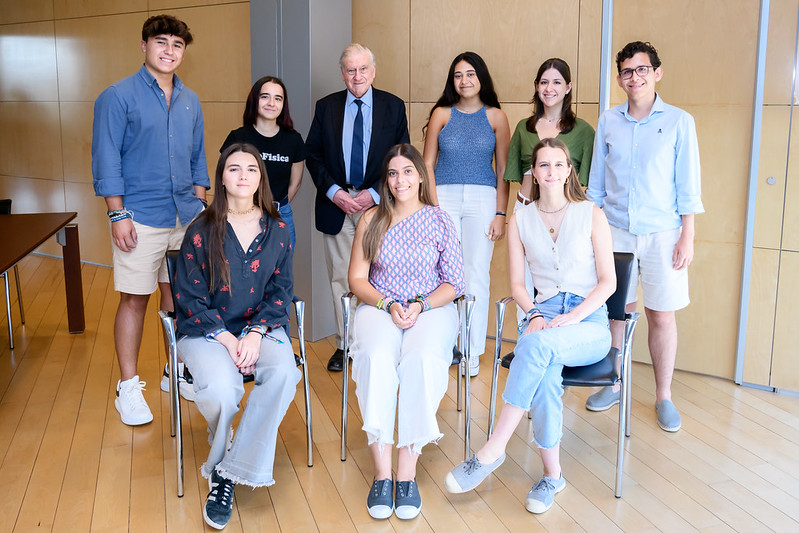Young ‘10’ science students train at CNIC with Dr Valentín Fuster as their mentor
Again, this year, eight Spanish high school students with an average grade of 10 in both years of their baccalaureate course have received an ACÉRCATE programme grant, organised by the Spanish National Centre for Cardiovascular Research (CNIC) under the auspices of the Young-CNIC Training Plan. This plan’s goal, a personal commitment of the centre’s general director, Dr Valentín Fuster, is to “attract and train the most brilliant young minds from the earliest age in order to create a pool of excellence in investigation in the field of cardiovascular research”.
The opportunity, open to all high school students in Spain, was awarded this year to 6 young women and 2 young men who met the requirements and applied to participate in the programme: 5 are from the community of Valencia, 2 from Madrid and 1 from Andalusia.
Including this year’s students, the total number of participants in the programme has been 120 students, 46 male and 74 female. In this edition, the eight young students are Jesús Bello Sancarlos, María Castellar García, Carmen Ferrer Martínez, Marta Garófano Liñán, Diego Montés Ferrer, Paula Nácher Zambrana, Lucía Sánchez and Carlota Zornoza Félix. In addition to participating in the day-to-day life of a centre of excellence in research like CNIC, they will be able to share their experiences and doubts with the centre’s research staff, but also with Dr Fuster.
Dr Fuster considers that staring a training programme during such early stages of education is the key to attracting future researchers, because young people are the “future of research in our country”.
This year, the students will attend presentations on scientific methods, as well as on basic, clinical and translational cardiovascular research. They will also have sessions with the Technical Units and Research Groups, where they will be able to do activities that help them come into contact with research, such as practical experience in molecular biology, transgenesis, shared medicine, histology proteomics, genomics, pluripotent stem cells, viral vectors, cytometry, bioinformatics , imaging technology, etc., and gain first-hand experience of the techniques used in research. They will also participate in a session and debate about women in science.
When the practical sessions end, the students will have to summarise what they have learned, propose a project and present it in public.
As well as coming into contact with the most cutting-edge technology and state-of-the-art experiments, the ACÉRCATE programme has a fun side. So, the participants will spend 15 days at a university residence, a foretaste of what awaits them in their university life. They will also complete a free-time programme including both fun and cultural activities.
Of all the CNIC training programmes, this is the one aimed at attracting the youngest talent. The continued support of the Fundación Pro CNIC is essential for the existence of this programme, year on year, and for it to continue attracting talent from an early age. “We are very satisfied with this concept, which we started more than 20 years ago”, adds Dr Fuster. He concludes, “in this way they get the research ‘bug’ and we encourage them to continue”.












